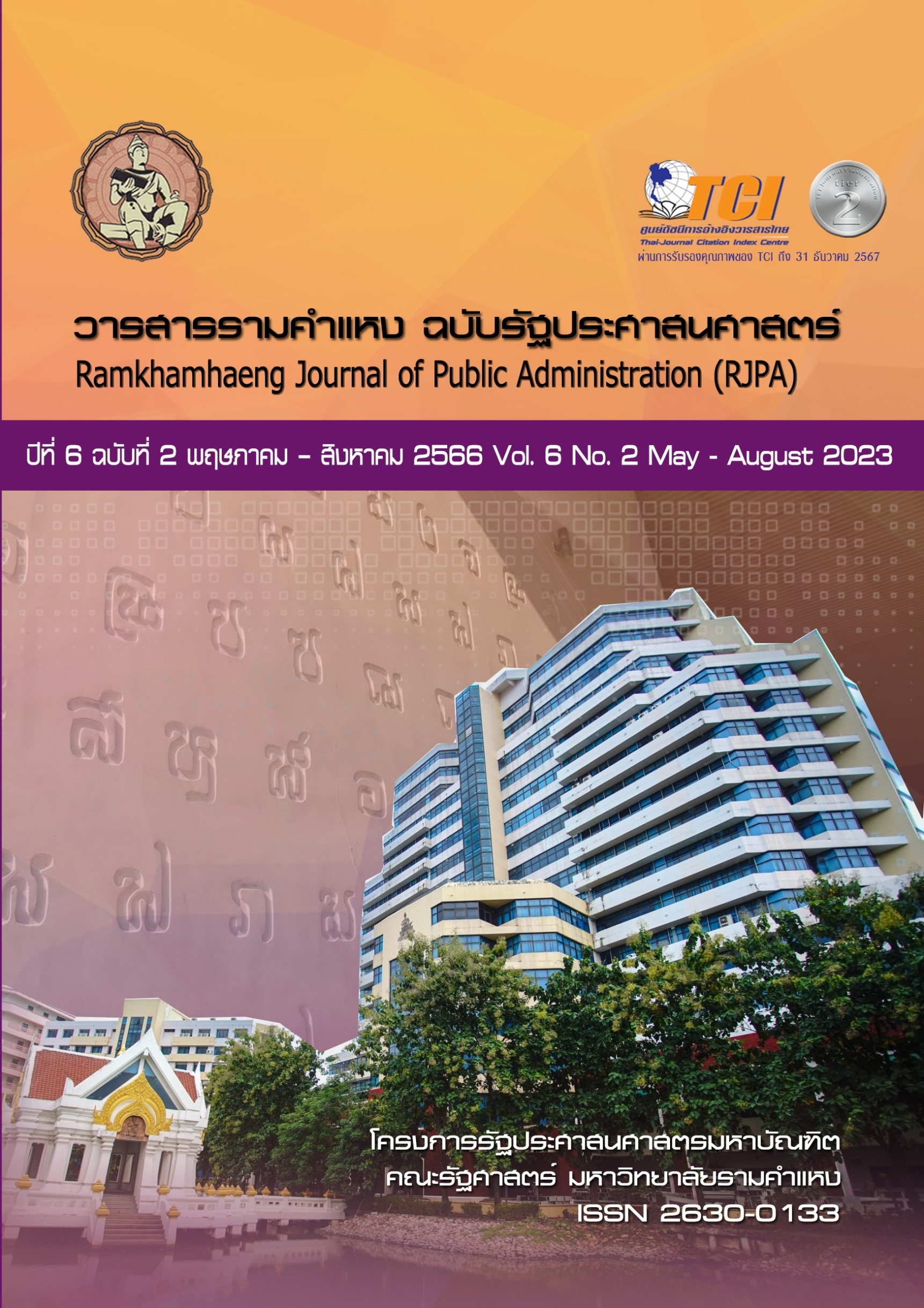The role of the Armed Forced Development Command and the National Security B.E. 2504-2564
Keywords:
The Armed Forces Development Command, Development, National SecurityAbstract
This qualitative research aimed to (1) explain the roles of the military towards international security from 1961-2021; (2) analyze mission and roles of the military towards national security; and (3) analyze the roles of the Armed Forces Development Command through development projects that support national security mission. Data collection employed was expert in-depth interview. The results revealed that there were 3 roles of the military towards international security, including (1) the roles of militarycombat against either external intruders or communists for national security reason (2) the role of military alliance deployment and (3) the role of international promotion and development. Military roles towards international security from 1961 to 2021, however, were divided into 2 aspects: traditional security and non-traditional security. Military mission and roles, in addition, served 4 core institutions: monarchical institution; legislative institution; government; and military. The roles of the Armed forces Development Command through the development projects were being (1) a linkage (2) a collaborator and (3) a supporter. 5 development project patterns included (1) economic security (2) socio-cultural security (3) technological security (4) political security and (5) human security.
References
เฉลิมเกียรติ ผิวนวล. (2535). ความคิดทางการเมืองของทหารไทย 2519-2535. กรุงเทพมหานคร: นำอักษรการพิมพ์.
ธีรยุทธ บุญมี. (2550). ความคิดสองทศวรรษวิเคราะห์แนวโน้มการเมืองไทย. กรุงเทพมหานคร: สำนักพิมพ์มติชน.
ปกรณ์ ปรียากร. (2538). ทฤษฎีและแนวคิดเกี่ยวกับการพัฒนาในการบริหารการพัฒนา. กรุงเทพมหานคร: สามเจริญพาณิช.
พระราชบัญญัติจัดระเบียบราชการกระทรวงกลาโหม พ.ศ. 2551. (2551). ราชกิจจานุเบกษา, 125(26ก), 35-50.
ศุภมิตร ปิติพัฒน์. (2547). การปรับตัวของกระทรวงการต่างประเทศในยุคโลกาภิวัตน์: ศึกษากรณีโครงการนาร่องเอกอัครราชทูตแบบบูรณาการ. วิทยานิพนธ์รัฐศาสตรดุษฎีบัณฑิต, จุฬาลงกรณ์มหาวิทยาลัย.
สานักงานคณะกรรมการพัฒนาการเศรษฐกิจและสังคมแห่งชาติ. (2561). ยุทธศาสตร์ชาติ (พ.ศ. 2561-2580). กรุงเทพมหานคร: สำนักงานเลขานุการของคณะกรรมการยุทธศาสตร์ชาติ.
สุรศักดิ์ ทองเพชร. (2547). บทบาทของกองทัพเรือไทยในปัจจุบันที่มีผลประโยชน์ของชาติในด้านความมั่นคงและเศรษฐกิจ. วิทยานิพนธ์ศิลปศาสตรมหาบัณฑิต, มหาวิทยาลัยรามคำแหง.
Bamrungsuk, S. (1988). United States foreign policy and Thai military rule, 1947-1977. Bangkok: Duangkamol.
Stepan, A. C. (2001). “The New Professionalism of Internal Warfare and Military Role Expansion”, in Arguing Comparative Politics. Oxford, UK: Oxford University Press.
Huntington, S. P. (1968). Political Order in Changing Societies. New Haven, CO: Yale University Press.
Downloads
Published
How to Cite
Issue
Section
Categories
License
Copyright (c) 2025 ธนากร คงขำ, สุรพล ราชภัณฑารักษ์

This work is licensed under a Creative Commons Attribution-NonCommercial-NoDerivatives 4.0 International License.



